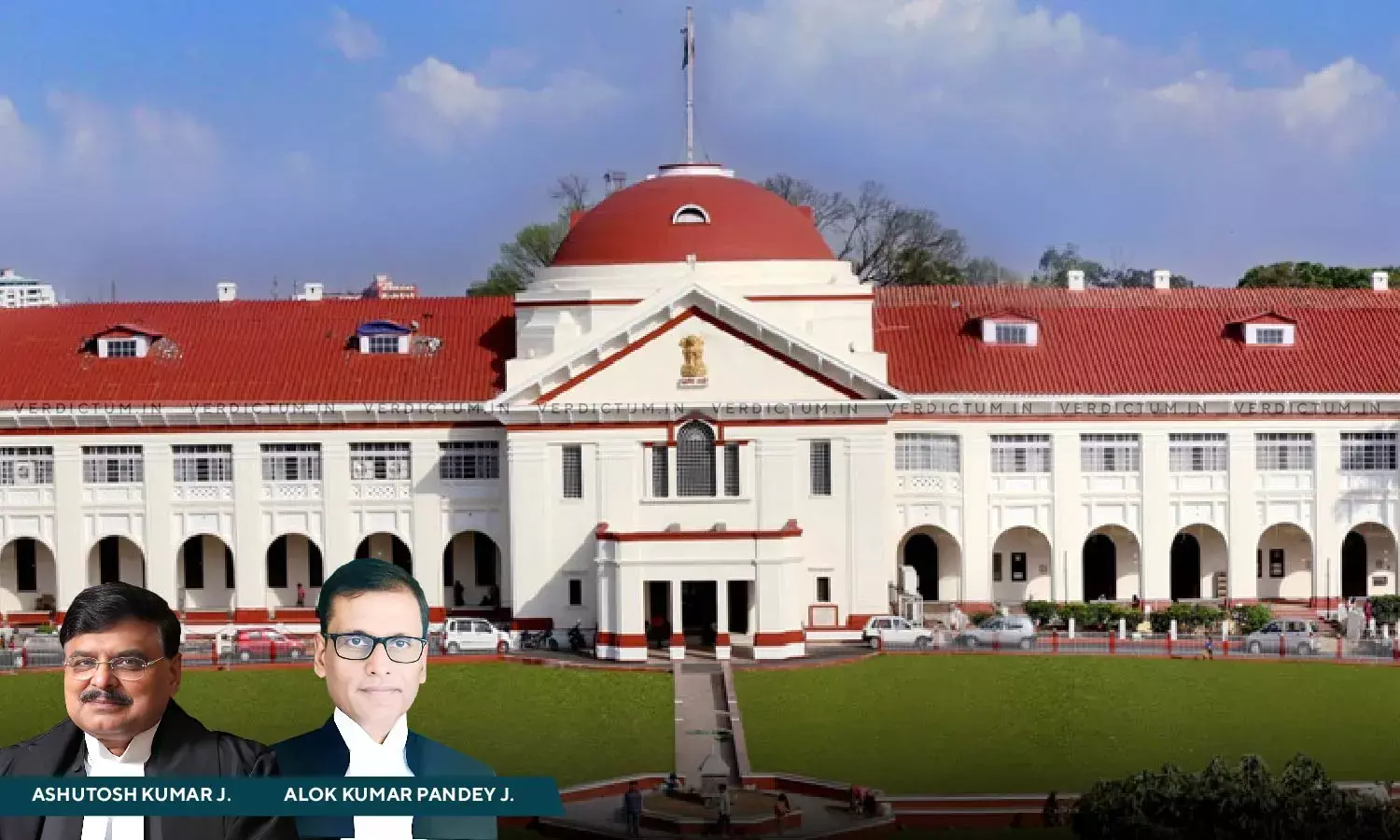Giving Legal Help Is Advocate's Bounden Duty: Patna HC Grants Bail To Lawyer Associated With PFI

The Patna High Court observed that providing legal assistance to banned Popular Front of India cadre or conducting interviews for scholarship candidates associated with the organization cannot be construed as engaging in terrorist acts.
The Court granted bail to an Advocate accused of offences under Sections 120, 120B, 121, 121A, 153A, 153B, and 34 of the Indian Penal Code.
The Bench of Justice Ashutosh Kumar and Justice Alok Kumar Pandey was dealing with a batch of criminal appeals filed under Section 21(4) of the National Investigation Agency Act, 2008. The accused-appellants, Jalaluddin Khan, Athar Parwez, and Advocate Nooruddin Jangi, were alleged to be active members of the banned organization P.F.I.The case originated from information received by the Bihar Police about a plan to cause disturbance during the proposed visit of the Prime Minister of India.
A raid conducted by the police led to the recovery of documents related to unlawful activities from the rented premises of the accused. The charges against appellants included involvement in activities with the ulterior aim of causing bloodshed and working towards re-establishing Muslim rule in India. The Special Court, NIA had dismissed their bail applications. Challenging this they approached the High Court.
The appellants argued that the recovery of alleged 'hate literature' did not establish a case against them under the charged sections. They contested their association with P.F.I. and emphasized that legal representation and scholarship interviews could not be classified as terrorist acts.
The Advocate-appellant also submitted that he is a serious law practitioner representing clients in different Courts of law and he was arrested from Lucknow (Uttar Pradesh) when he had gone there to appear before the District & Sessions Judgecum-Special Judge, PMLA, Lucknow on behalf of his client.
While the NIA apprised the Court that from the documents recovered from the premises of appellants/Jalaluddin Khan and Athar Parwez, it was found that it contained an estimation that even if 10 per cent of the total Muslim population would rally behind P.F.I., the majority community would be subjugated.
The court examined the materials collected during the investigation, considering the nature and gravity of the charges. The Court upheld the rejection of bail for Jalaluddin Khan and Athar Parwez, citing factors such as the severity of the charges, the likelihood of the offence being repeated, and the danger of tampering with evidence.
"We find from the impugned orders that with respect to appellants/Jalaluddin Khan @ Md. Jalaluddin and Athar Parwez, the Special Court took into account all the necessary factors, namely, the nature and gravity of the charge; the severity of the punishment, in the event of conviction; danger of them absconding, if released on bail; their position and standing in the society; likelihood of the offence being repeated; reasonable apprehension of tampering of the evidence and the danger of justice being thwarted, and rejected their bail application. We do not find any folly with the conclusion of the Trial Court with respect to appellants/Jalaluddin Khan @ Md. Jalaluddin and Athar Parwez", observed the Court in its Judgement.
However, the court found that the materials against appellant Advocate Nooruddin Jangi did not prima facie make out a case against him. The Bench stated that providing legal help or participating in scholarship interviews, even for P.F.I. members, did not fall under the prescribed categories of terrorist acts.
Granting bail to the Advocate, the Court in its Judgement stated, "On behalf of appellant/Nooruddin Jangi @ Advocate Nooruddin Jangi, it has been urged that assuming every thread of allegation against him to be true, no offence under Sections 121, 121A or 153A of the I.P.C. could be said to have been made out. He had never ever attempted to wage war or conspire against the Govt. of India. Giving legal help to one who required such help was only his bounden duty as an Advocate. No words or sign of the appellant/Nooruddin Jangi @ Advocate Nooruddin Jangi, either in written or oral forms, was brought on record to indicate that he promoted enmity between different groups which could have been prejudicial to national integration. None of the protected witnesses also have stated anything against him except for his association with P.F.I".
The Court also observed, "Terrorist organizations and Terrorist acts have been defined under the 1967 Act. The Act provides for punishment for terrorist acts, for raising funds for terrorist acts or for participating or organizing such acts as also for giving support to any Terrorist organization. But providing legal help to the P.F.I. cadre or interviewing candidates for selecting them for given scholarship would never fall in any one of the proscribed category."
In light of its findings, the Patna High Court accordingly disposed of all the 3 appeals.
Cause Title: Jalaluddin Khan v. Union of India through the National Investigation Agency [Criminal Appeal (DB) No.514 of 2023]

